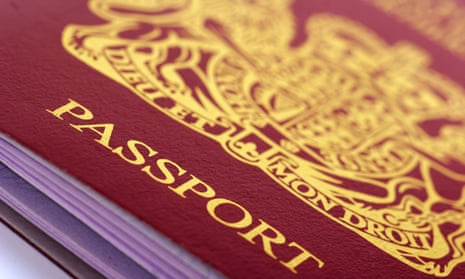The Home Office is to be challenged to provide gender-neutral, or “X”, passports to UK citizens at a high court hearing this week.
The application for a judicial review is being made by lawyers on behalf of Christie Elan-Cane, who has campaigned on the issue for 25 years and given evidence to parliament about transgender equality.
Last month Canada became the 10th country to offer citizens gender-neutral travel documents. Australia, Denmark, Germany, Malta, New Zealand, Pakistan, India, Ireland and Nepal already have a third category besides male and female.
Standards for machine-readable passports set by the UN International Civil Aviation Organisation (ICAO) allow for individual states to enter M, F or X in the category specifying an individual’s sex. X stands for unspecified.
Elan-Crane appeared before the Commons women and equalities select committee two years ago to give evidence for their inquiry into transgender equality.
“Legitimate identity is a fundamental human right but non-gendered people are often treated as though we have no rights,” Elan-Cane said. “The UK’s passport application process requires applicants to declare whether they are male or female. It is inappropriate and wrong that someone who defines as neither should be forced to make that declaration.’’
Elan-Cane, who was born a women but began transitioning after surgery, believes individuals should be given more than the binary choice of being a man or a woman. Since July more than 40 MPs have signed an early day motion in favour of gender-neutral passports.
Elan-Cane argues the government is discriminating against its own citizens as it allows holders of foreign X passports to enter the country at border checks.
The permission hearing is expected to be held in the administrative division of the high court in London on Wednesday. Elan-Cane’s initial application on paper was dismissed.
Solicitors from Clifford Chance as well as Kate Gallafent QC and Tom Mountford of Blackstone Chambers are working pro bono on the claim. They will argue that Elan-Cane’s human rights under articles 8 and 14 of the European convention on human rights – the right to private and family life and absence of discrimination – are being illegally restricted by the Home Office’s refusal.
They maintain that UK nationals whose identities are neither male nor female are subject to and humiliated by a discriminatory passport policy that fails to acknowledge their identities or their existence.
Elan-Cane planned to launch the legal challenge two years ago but held off pending the select committee inquiry’s findings. The MPs’ final report recommended that the government “must look into the need to create a legal category for those people with a gender identity outside that which is binary and the full implications of this”.
Meanwhile, the Office for National Statistics (ONS) has suggested the “sex” question in the next census, in 2021, could be made voluntary in response to claims that it discriminates against transgender people.
The move would make the UK one of the first countries in the world not to require its citizens to tell officials what sex they are. A two-step option, with separate sex and gender identity questions, was ruled out.
The ONS has explored other options, including a hybrid question with the addition of an “other” category. “We would tentatively recommend that an unchanged 2011 census question should not be mandatory, for the benefit of, particularly, intersex and non-binary people who cannot choose male or female as a reflection of their current sex or gender,” it said in a report.
It also recommended changes “to better meet the needs of trans respondents”, such as removing “sex” and adding one or more additional categories for non-binary and intersex people.
